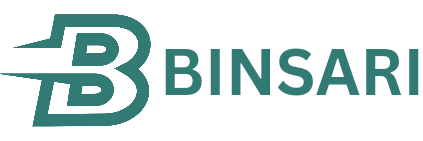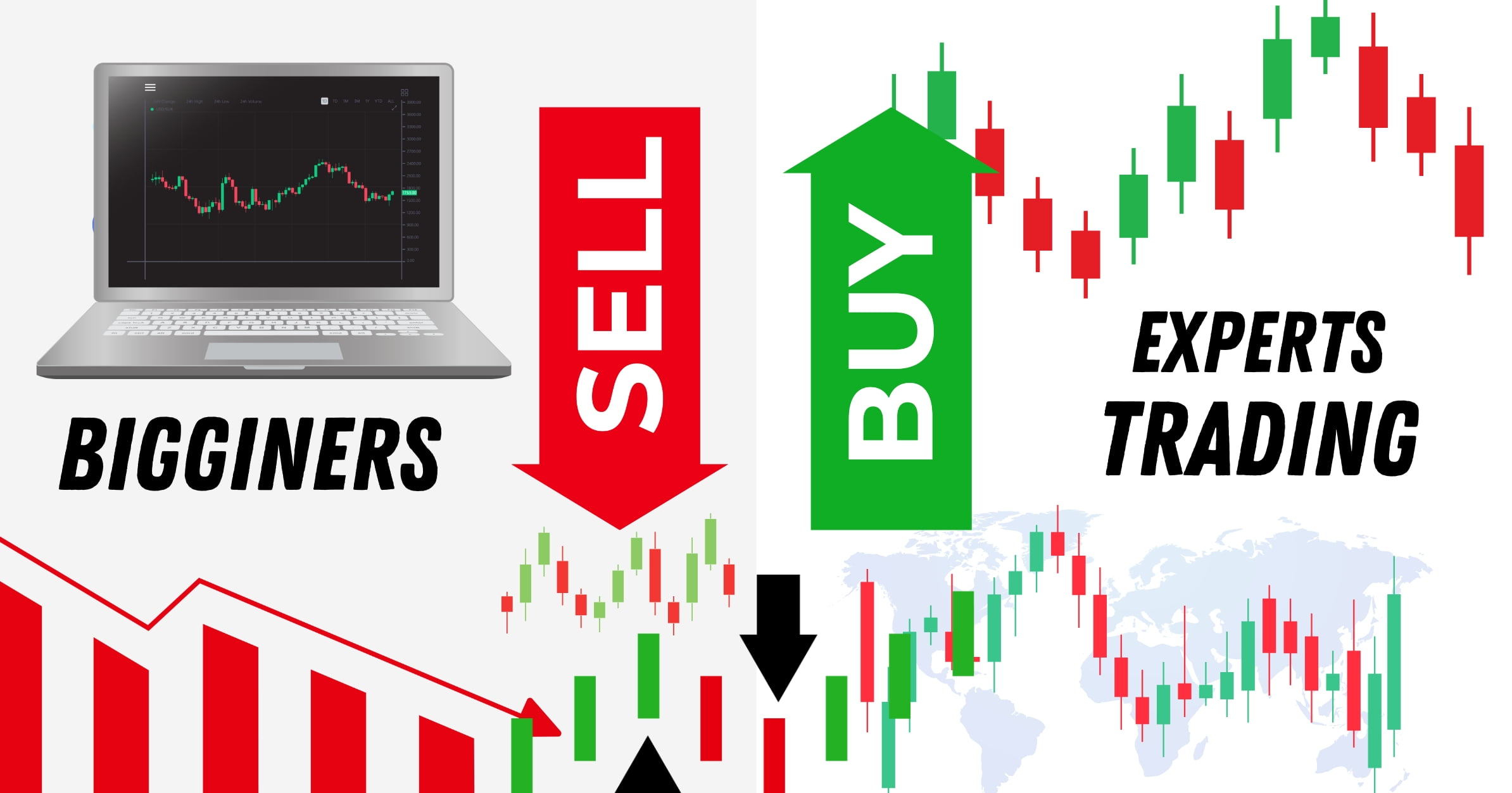Steps to Starting a Trading Business from Home
Creating a trading business from home may be a thrilling and profitable undertaking. It gives you the freedom to work at your own pace and follow your enthusiasm for trading. But, it’s crucial to comprehend the essential procedures for establishing a profitable trading organization before you start on this journey.
Educate Yourself
Learning about the various financial markets and trading tactics is the first step before launching a trading business. This will raise your chances of making wise trading selections by assisting you in building a strong knowledge base. You may acquire the required information and abilities from a variety of online resources, including books, webinars, and courses.
Choose Your Trading Platform
It is now necessary to select a trading platform after you have developed a solid grasp of the markets. A trading platform is a piece of software that lets you watch and make transactions in the markets. There are several choices, from entry-level platforms for novice traders to sophisticated platforms for seasoned traders. When choosing a platform, take into account elements like customer support, available features, and convenience of use.
Develop a Trading Plan
A trading plan is a set of rules and guidelines that you follow when making trading decisions. It helps you maintain self-control and prevents you from making impulsive, emotionally driven trades. Your trading goals, risk tolerance, entry and exit strategies, and money management rules should all be part of your trading plan. Take the time to develop a carefully considered trading plan that aligns with your objectives and trading style.
Start with a Demo Account
Before risking any real money, it’s best to practice trading using a demo account. The majority of trading systems allow you to trade with virtual money under actual market circumstances through demo accounts. By doing so, you will have the chance to test your trading tactics, become comfortable with the platform, and build confidence before switching to actual trading.
Manage Your Risks
An essential aspect of trading is risk management, which involves identifying and mitigating potential risks to protect your capital. It’s important to establish and adhere to a risk tolerance threshold. Use take-profit and stop-loss orders to secure your profits and minimize losses. Diversify your holdings to spread risk across multiple assets. Regularly review and adjust your risk management plans based on market conditions.
Stay Informed
It is important to be knowledgeable for effective trading in the constantly changing financial markets. Stay updated on corporate announcements that may impact the markets, economic data, and the latest market news. Utilize reliable information sources, and consider subscribing to newsletters or following reputable traders and analysts on social media.
Monitor and Evaluate
After you start trading in real time, it’s crucial to regularly monitor your transactions and evaluate your success. To keep track of your trades, including the reasoning behind your decisions and the outcomes of each trade, maintain a trading journal. Regularly review your transactions to identify trends, strengths, and weaknesses. This will help you improve your overall performance and trading strategies.
Establishing a home-based trading business requires dedication, self-discipline, and continuous learning. Acquiring expertise and consistent financial success may take time. However, with the right mindset and a well-planned strategy, you can turn your trading hobby into a profitable venture.
Define Your Trading Niche
When starting a trading firm, the first step is to find your specialization. Trading is a broad field with a wide range of marketplaces and products available. It’s crucial to focus on a narrow specialty that aligns with your skills, interests, and financial goals.
When determining your trade specialty, consider the following questions:
When determining your trade specialty, consider the following questions:
Which financial markets pique your curiosity the most? Cryptocurrencies, commodities, FX, stocks, or something else?- Which type of trading do you prefer: day trading, swing trading, or long-term investing?
- Do you have knowledge about a certain area or industry?
- How much danger can you take?
You may improve your chances of success and establish yourself as an authority in the field you’ve selected by focusing more intently.
It’s critical to carry out in-depth study to have a comprehensive grasp of the market dynamics, trends, and variables influencing the pricing of the instruments you will be trading after you have determined your trading niche. You will be able to boost your chances of generating good trades by customizing your trading strategy to your specialty with the aid of this study.
For instance, you must keep up with the most recent information and advancements in the IT business if you have decided to trade stocks in that area. Making educated trading decisions and spotting possible investment opportunities will be much easier with this.
Furthermore, you may improve your ability to forecast price changes and time your trades by being familiar with the technical analysis tools and indicators that are often utilized in your chosen area. Learning to use these tools—candlestick patterns, moving averages, and Fibonacci retracements, for example—can help you become a better trader and increase your overall performance.
It’s critical to incorporate fundamental analysis into your trading approach in addition to technical analysis. This entails examining the company or assets you are trading’s financial standing, earnings reports, and industry trends. Understanding the underlying principles that determine the value of the instruments you have selected can help you reduce risk and make better decisions.
You can experiment with various market-specific trading methods and tactics as you develop expertise and self-assurance in your chosen trading area. To maximize your trading outcomes, for instance, if you trade forex, you may think about utilizing several currency pairings, leverage, and risk management strategies.
Recall that creating a profitable trading company requires patience, commitment, and ongoing education. You may improve your prospects of long-term, steady income by identifying your trading specialty and gaining a firm grasp of the market dynamics and trading tactics unique to it.
Educate Yourself
Trading is a talent that has to be continuously learned and developed. Keep up with the most recent industry trends, methods, and tactics, even if you have some prior knowledge and expertise.
There are several approaches to become knowledgeable about trading:
- Look into books and books written by highly successful traders.
- Participate in webinars or online courses
- Participate in trade forums and communities
- Observe reliable sources of financial news
Recall that in the trading world, information truly is power. Your ability to manage the intricacies of the market and make wise selections will improve with increased knowledge.
Gaining important ideas and viewpoints may be obtained by reading books and articles authored by profitable traders. These materials frequently provide helpful guidance, real-world examples, and tried-and-true tactics. You may improve your understanding of the markets and create your own trading style by taking advice from those who have previously found success in the trading profession.
Webinars and online courses are great resources for expanding your trading expertise. These learning environments include planned classes and interactive discussions on a variety of subjects, from fundamental trading ideas to sophisticated tactics. They provide you the freedom to study at your own speed and give you the chance to speak with seasoned traders and get their advice.
Participating in forums and trade communities may also be quite helpful. These virtual communities unite traders of all skill levels, giving you the chance to interact with like-minded people, exchange concepts, and gain knowledge from one another’s experiences. Talking with others and taking part in trade challenges can help you improve your abilities and learn important lessons from a variety of viewpoints.
Apart from books, classes, and groups, it’s critical to keep up with credible financial news sources. Keeping up with reputable news sources and financial periodicals can help you stay up to date on developments in the world economy, market patterns, and possible trading opportunities. It is crucial to depend on trustworthy sources that offer impartial and precise data in order to make knowledgeable trading choices.
You can keep up with the latest developments in the trading business by never stopping learning and keeping yourself updated. Keep in mind that as markets are always changing, tactics that were successful in the past might not be as successful now. As such, it’s imperative that you devote time and energy to enhancing your expertise and adjusting to novel market circumstances.
Set Up Your Home Office
A home-based trading firm requires a separate workstation. Establishing an atmosphere that encourages order, productivity, and attention is crucial.
The following advice can help you set up your home office:
- Choose a place in your house that is calm and well-lit: Locate a quiet area in your house where you can work without being disturbed. This may be a converted garage, a spare room, or simply a part of your living room. In order to lessen eye strain and provide a comfortable working atmosphere, make sure the location has appropriate lighting.
- Invest in a comfy workstation and chair: Having a comfortable desk and chair is essential if you want to work long hours from home. Seek for ergonomic solutions that provide your neck and back the support they need. Having a workstation that can be adjusted in height can also help with posture.
- Organize numerous displays for effective multitasking: Trading frequently entails keeping an eye on several trading platforms, news feeds, and charts at once. To increase productivity and simplify the process of keeping track of crucial information, think about making an investment in many displays.
- Make sure you have a dependable online connection: Trading requires a steady, quick internet connection. Trade execution mistakes or lost chances might result from sluggish internet speeds or frequent disconnections. To guarantee continuous access to the markets, think about purchasing a backup connection or increasing your internet package.
- Arrange your resources and trading tools: To reduce disarray and increase productivity, arrange your papers, resources, and trade tools in a clear and orderly manner. To keep study materials, trading techniques, and crucial papers, use shelves, file organizers, or digital folders. This will enable you to keep focused on your trading operations and obtain the information you want promptly.
Having a specific area set out for trading will increase your productivity and help you keep your personal and professional lives apart. Additionally, it will establish a formal environment that might improve your attention and self-control as a trader. If you take the time to organize your home workspace, you’ll be ready to trade successfully from the comfort of your own home.
Develop a Trading Plan
A trading strategy functions similarly to a road map, directing your trading choices and activities. It describes your objectives, plans, methods for controlling risk, and trading guidelines. Having a well-thought-out trading plan is essential before you begin trading on the financial markets. Without a strategy, you run the risk of acting on impulse and choosing your actions based more on feelings than reason.
When creating a trading strategy, take into account the following components:
- Set clear and realistic financial goals: It is important to have a clear understanding of what you want to achieve through trading. Whether you are looking to generate a steady income or build long-term wealth, setting realistic financial goals will give you a sense of direction and purpose.
- Establish your position size strategy and risk tolerance: Each trader has a unique threshold for risk. While some traders choose a more cautious strategy, others are comfortable taking significant risks in the hopes of earning larger profits. It’s critical to evaluate your risk tolerance and create a position size plan that complements your risk tolerance.
- Select the trading methods and indicators you want to use: Traders have access to a wide range of trading techniques and indicators. Selecting a strategy that complements your trading style and advances your objectives is crucial. Regardless of whether you like swing, day, or trend trading, before incorporating any approach into your trading plan, make sure you fully comprehend and test it.
- Establish guidelines for entering and leaving trading: Remaining disciplined and steering clear of rash actions need having precise guidelines for entering and leaving deals. The terms under which you will join a trade, such as certain price levels or technical indications, should be outlined in your trading strategy. It should also specify the conditions under which a trade should be closed, such as stop-loss levels and profit objectives.
You’ll be more likely to maintain discipline, make fewer emotional decisions, and consistently turn a profit if you have a clear trading plan. Your trading plan should be reviewed and updated on a frequent basis since both the market and your personal situation might change over time. You may approach the markets with confidence and raise your overall trading success by sticking to a trading strategy.
Choose a Reliable Broker
You’ll be more likely to maintain discipline, make fewer emotional decisions, and consistently turn a profit if you have a clear trading plan. Your trading plan should be reviewed and updated on a frequent basis since both the market and your personal situation might change over time. You may approach the markets with confidence and raise your overall trading success by sticking to a trading strategy.
- Credibility and regulation: Picking a broker regulated by a respectable financial body is crucial. This guarantees that the broker follows tight financial rules and functions within predetermined parameters. Seek out brokers that are subject to well-known regulatory bodies, such as the Financial Conduct Authority (FCA) in the UK or the Securities and Exchange Commission (SEC) in the US. To determine the broker’s credibility, you could also look into their reputation and read other traders’ feedback.
- Trading commissions and fees: The costs and commissions that brokers charge for their services vary. Certain brokers could provide minimal trading costs, but they make up for it by charging greater spreads. To make sure you are receiving affordable rates, it is crucial to comprehend the charge structure and compare it with those of other brokers.
- Variety of tradable instruments: Take into account the broker’s selection of financial products. Make sure the broker offers access to the markets you want to trade, whether you have a preferred trading technique or collection of assets. Seek out brokers who provide a large selection of indexes, commodities, currencies, and equities.
- Trading tools and platforms: Selecting a broker who provides a dependable and user-friendly trading platform is essential since it serves as your entry point to the markets. A few things to look for include order execution speed, sophisticated charting tools, and real-time market data. In addition, several brokers provide extra trading tools including trade alerts, economic calendars, and instructional materials.
- Customer service: A trustworthy broker should provide top-notch customer service to help you with any questions you may have about trading or technical difficulties. Verify whether the broker offers assistance via a variety of channels, including live chat, email, and phone. Take into account their customer service team’s response and availability as well.
Make sure the broker you choose best meets your trading needs and preferences by doing extensive research and comparing many ones. Recall that selecting the appropriate broker is an essential first step in becoming a profitable trader.
Start Trading with a Demo Account
It’s best to practice trading using a demo account before risking any real money. The majority of brokers provide demo accounts that let you trade in actual market circumstances using virtual money.
With a demo account, you are able to:
- Learn how to use the trading platform.
- Try out your trading methods and approaches.
- Develop self-assurance when making transactions.
- Determine what needs to be improved.
Unless you feel confident and prepared to trade with real money, take your time improving your abilities on a demo account.
Financial market trading may be a difficult and complicated undertaking. It necessitates a thorough comprehension of the numerous variables that might affect how much different assets cost. You may start with a demo account and get significant experience without having to risk any real money.
Gaining experience with the trading platform is one of the main advantages of utilizing a demo account. Every broker could have a distinct platform with special tools and features. You may learn how to use the platform’s features, place trades, create stop-loss orders, and examine charts and indicators by using a demo account.
Additionally, a sample account is a great way to test out your trading methods and ideas. You may test out various strategies, such swing trading, day trading, or long-term investment, to observe how they function in various market environments. This enables you to optimize your tactics and make required modifications prior to staking actual funds.
Gaining confidence in making trades is another benefit of trading on a sample account. Traders often experience anxiety, particularly when real money is involved. You may practice self-control and discipline by using a demo account to regulate your emotions. When trading with real money, this can assist you in making wiser choices and preventing rash judgments.
Additionally, a sample account lets you pinpoint areas that need work. You can see trends or errors that can be fixed when you trade and review your performance. To improve your chances of success, you may improve your trading techniques by taking lessons from previous losses.
It’s crucial to understand that trading on a demo account differs from trading with actual money. It’s possible that in a simulated setting, psychological aspects of trading—such as greed and fear—may not be completely experienced. As a result, it’s imperative to progressively go from a demo to a genuine account. As you gain more confidence and expertise, steadily raise your trading size from a small starting stake.
In summary, opening a trial account is a crucial first step for each prospective trader. It offers a risk-free setting where you may hone your trading abilities. Use this chance to lay a strong foundation before delving into the realm of actual trading.
Manage Your Risks
Managing risk is an essential part of trading. It entails putting plans and tactics into action to safeguard your investment and reduce any losses. Even the most experienced traders can experience large financial losses in the absence of effective risk management.
Placing a stop-loss order before every transaction is one of the best ways to limit risk. This is the set price at which you will close the deal in order to minimize your possible losses. You may prevent yourself from holding onto a losing position for too long, which could lead to even bigger losses, by placing a stop-loss order.
Apart from implementing stop-loss orders, portfolio diversification is another crucial risk management strategy. It is possible to lessen the effect of the performance of any one investment on the performance of your whole portfolio by distributing your assets among a variety of asset classes, industries, and geographical areas. In this manner, the losses from a bad investment may be somewhat offset by the gains from the others.
It’s also very important to refrain from risking more of your funds than a specific percentage on a single deal. It’s often advised by seasoned traders to never risk more than 1% to 2% of your trading money on any one transaction. This strategy makes sure that even in the event that a transaction goes against you, the possible loss is constrained and won’t have a big effect on your total capital.
It’s critical to continuously evaluate and modify your risk management plans. Because the financial markets are dynamic and ever-evolving, strategies that have proven successful in the past could not work in the future. You may better safeguard your trading money and respond to changing market conditions by keeping abreast of market developments and modifying your risk management tactics accordingly.
Recall that there are dangers associated with trading, and that in order to safeguard your trading funds, you must have a risk management strategy in place. Through the application of these risk management techniques, as well as ongoing strategy assessment and adjustment, you may raise your odds of long-term trading success.
Keep Learning and Adapting
The trade environment is always changing, therefore in order to be competitive, you have to continuously learning and growing. be learning new things, be abreast of industry developments, and be prepared to modify your approach as needed.
Think about the subsequent methods to continue learning:
- Participate in trading seminars and workshops: These gatherings let you network with other traders and provide insightful commentary from professionals in the field. You may learn about the newest trading strategies and obtain fresh ideas by attending these seminars.
- Follow successful traders on social media: Sites like LinkedIn and Twitter are excellent places to get knowledge and can introduce you to other traders who are successful. You may get knowledge from successful traders’ methods, experiences, and market analysis by following them.
- Get financial periodicals and newsletters subscribed to: Subscribe to reliable financial periodicals and newsletters to stay up to speed on market trends and the newest news. These sites frequently offer in-depth research, professional judgments, and insightful information on a range of trading techniques.
- Examine your trading results and take note of your errors: Examine your trades and results on a regular basis. Recognize trends, errors, and opportunities for development. You may improve your decision-making process and your methods by taking lessons from your blunders.
You will be able to improve your trading abilities and raise your chances of long-term success by being proactive and receptive. Recall that the trading environment is changing, so what is effective now could not be effective tomorrow. As such, it’s critical to maintain flexibility and actively look for chances for development and advancement.




